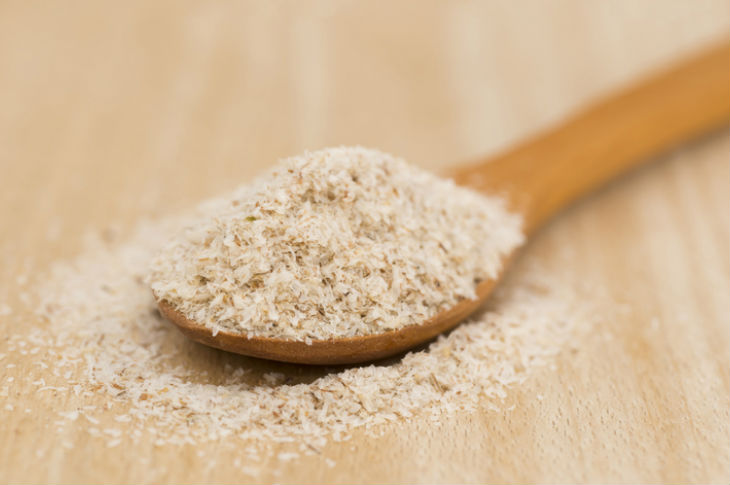
One reason experts recommend filling half your plate with vegetables and fruits is because they’re top sources of fiber. High-fiber foods tend to be more filling than low-fiber foods, and it takes longer to eat them. Plus, fiber may help lower your cholesterol levels, blood pressure, and risk of dying from cardiovascular disease and cancer. Because it passes through your body relatively intact, fiber can also help you have healthy bowel movements.
Sold? Great! Unfortunately, most of us don’t get the recommended 25 to 38 grams of fiber daily (women and men over the age of 50 should aim for 21 and 30 grams respectively). On average, adults consume about 15 grams per day, and those on low-carb diets consume less than 10 grams, according to one 2017 study.
Fiber Supplements Can Help Fill the Gap
Made from various types of fiber—including the husks of tiny psyllium seeds, a type of wood pulp called methylcellulose, and inulin (i.e., chicory root)—these supplements typically deliver a few grams of the nutrient per serving. Whether you should take one depends on a few factors. If you’ve tried tweaking your diet and still aren’t getting enough fiber, you’re constipated, or you have a medical condition that makes it hard to tolerate a high-fiber diet, you may want to consider taking a supplement.
Food is Still the Best Source
“It’s best to get your fiber from food, because you’re not only getting fiber, you’re also getting vitamins, minerals, and antioxidants,” says Jerlyn Jones, an Atlanta-based registered dietitian nutritionist and spokesperson for the Academy of Nutrition and Dietetics. Besides fruits and vegetables, whole grains—including 100 percent whole-wheat pasta and bread, as well as oatmeal, popcorn, and brown rice—are packed with fiber. So are beans, peas, and lentils. Wheat germ and chia seeds, which you can add to smoothies or sprinkle on yogurt, can also boost your fiber intake.
With that said, there’s no evidence that these supplements are harmful. If you’ve tried tweaking your diet and still aren’t getting enough fiber, you’re constipated, or you have a medical condition that makes it hard to tolerate a high-fiber diet, or you have high cholesterol, you may want to consider taking a supplement. “Just make sure you discuss it with your healthcare practitioner, because supplements can interfere with your body’s absorption of certain medications,” says Jones.
If You Choose to Supplement, Start Slowly
The recommended dosage that’s been shown to reduce the risk of heart disease is at least 7 grams of soluble fiber (or about 2 tablespoons of psyllium husks) a day. Start slowly by adding 1 teaspoon to a glass of water a day, gradually increasing the amount over a few weeks. This will allow your body to adjust to the increased fiber. Ultimately work your way up to ½ to 1 tablespoon, dissolved into a glass of water, spread across 4 servings a day. By drinking more water as you increase your fiber, you’ll help the fiber work properly and prevent symptoms like gas and bloating.
The post Should You Take a Fiber Supplement? appeared first on Fitbit Blog.
source https://blog.fitbit.com/fiber-supplement/
No comments:
Post a Comment